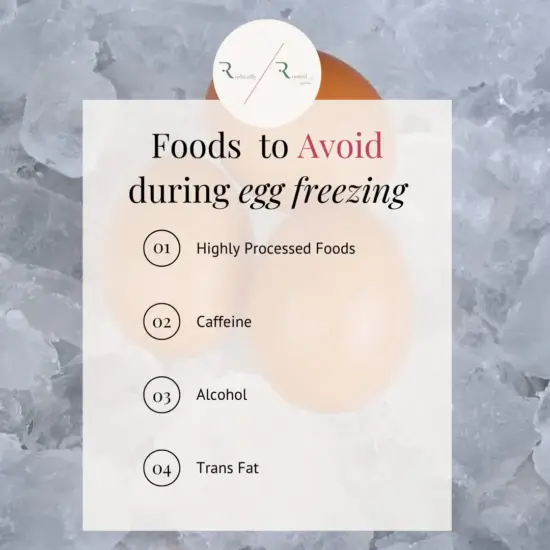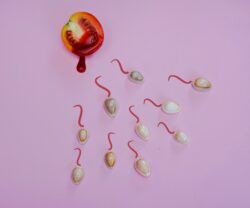4 Foods to Avoid During Egg Freezing
During the process of egg freezing, it’s important to maintain a balanced and healthy diet to optimize your chances of success. While there are no specific foods that you absolutely must avoid during egg freezing, it’s generally recommended to minimize the intake of certain foods that may have negative impacts on the quality of your eggs. Here are 4 foods to avoid during egg freezing:
1. Highly Processed Foods
Highly processed foods, particularly those high in refined sugars and unhealthy fats, can lead to fluctuations in blood sugar levels and hormone imbalances. Stable hormone levels are crucial for successful egg retrieval and preservation. Not to mention, processed foods are often high in inflammatory ingredients such as refined sugars, trans fats, and artificial additives. Chronic inflammation can negatively impact reproductive health and may interfere with the egg-freezing process.
2. Caffeine
While the research on the impact of caffeine on egg freezing is limited, some experts suggest limiting caffeine intake to less than 200 milligrams per day, which is roughly equivalent to one cup of coffee. Although most literature is based on caffeine during pregnancy, caffeine does affect stress response which can affect the development of healthy eggs.
3. Alcohol
Alcohol consumption is not recommended during the egg freezing process.Some experts recommend limiting alcohol intake to 1-2 standard drinks per week during the egg freezing process. Heavy or binge drinking should be avoided, as it can have adverse effects on fertility and overall health. Although the impact of alcohol on egg freezing success rates is not well-established, it is prudent to err on the side of caution and limit alcohol consumption during this process.
4. Trans Fats
Trans fats, often found in fried foods, baked goods, and processed snacks, have been associated with inflammation, ovulation disorders and overall fertility outcomes. A study published in the American Journal of Clinical Nutrition found that women with ovulation-related fertility problems tended to eat more trans fats than fertile women and even a small increase in trans fat intake was associated with a doubled risk of ovulatory infertility. Opt for healthier fats such as those found in nuts, seeds, and avocados.

Bottom Line
Since egg freezing is an intense (and expensive) process, it may be tempting to resort to ‘comfort’ foods. But to get the best outcome possible, it is important to maintain a well-balanced diet. Additionally, if you are looking for one-on-one nutrition recommendations from a registered dietitian, we are here to help. We provide individualized nutrition consultations and would love to help you optimize your egg freezing journey. For more information contact us!



